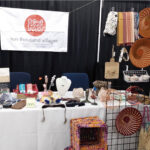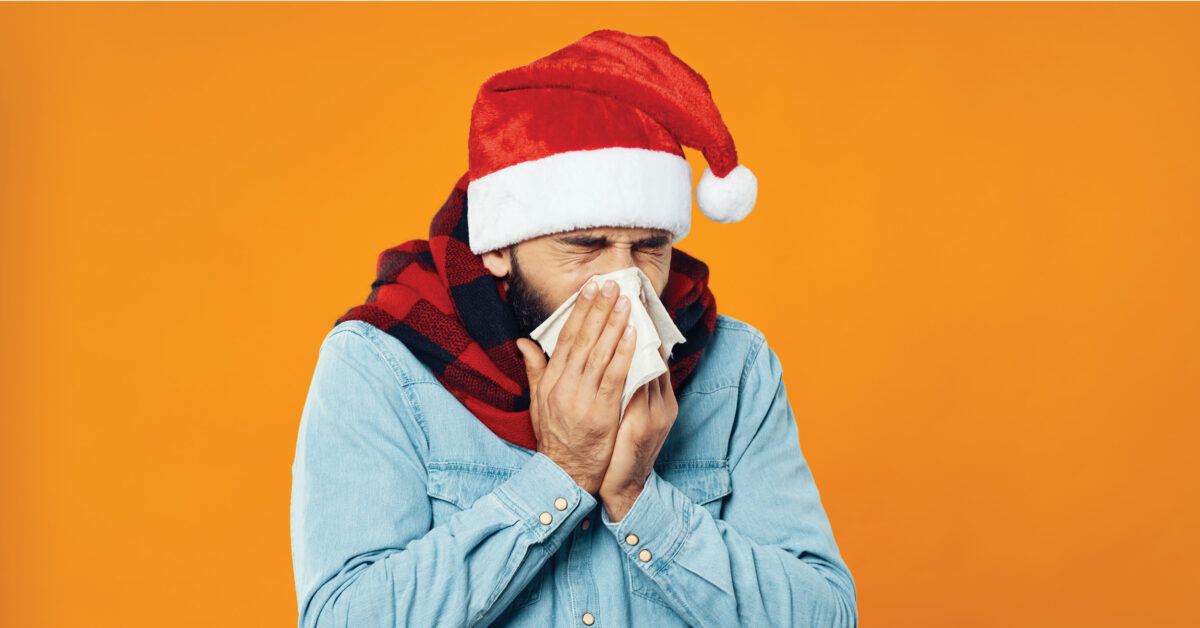
Making Mission a Priority: How One Local Small Church Strives to Make a Big Impact
December 2023
Set Yourself Up for a Healthy Holiday
December 2023by Kristy Como Armand
Are you allergic to Christmas?
Sneezing, congestion, coughing and itchy, swollen eyes aren’t on anyone’s Christmas wish list, but that’s what many people get every holiday season. Although allergies peak in the spring and fall, the holidays can deliver some unexpected allergy triggers.
Dr. Effat Rasul, internal medicine physician with Imperial Health, says it’s common to see a spike in allergy problems during the holiday season. “These reactions typically take people by surprise because they come on quickly and strongly right at the time of year when the last thing anyone wants to deal with is an unexpected health issue.”
She says there are multiple reasons for this spike, some of which are inherent with the winter season and others related to holiday décor. “Indoor allergies are worse in the winter months, which coincide with the holidays. You are closed up indoors, often with the heater on and the windows closed — all factors that contribute to indoor allergy symptoms. Combine this with the triggers of holiday traditions like the Christmas tree, dusty decorations and scented candles, and you’ve got the potential for allergic misery.”
In addition, Dr. Rasul warns that viral upper respiratory infections can mimic allergy symptoms and have a higher incidence when people are indoors more and often in close contact with relatives they may not see regularly during holiday gatherings. “If you’re unsure of the cause of your symptoms, see a doctor to get an accurate diagnosis and treatment,” she adds.
Like any other type of seasonal allergies, awareness of possible allergy triggers is the key to managing holiday allergies, according to Dr. Rasul. She highlights the most common culprits, along with advice for minimizing your exposure.
Live Christmas Tree
The centerpiece of the holiday for most people can be the biggest contributor to holiday allergic reactions. Mold is one big reason. Trees are often cut in advance and kept in humid environments to preserve freshness. This promotes mold spore growth. Research has shown that within just two weeks of bringing a tree into your home, indoor mold counts can increase significantly. Other possible tree-related allergens include sap and pollen. Fresh greenery used to make wreaths and boughs is also likely to harbor mold. Dr. Rasul says wearing long sleeves and even gloves when handling the fresh tree or greenery can help minimize your exposure. She also recommends removing as many allergens as possible before bringing the tree indoors. You can do this by shaking, blowing with a leaf blower and hosing it down.
Decorations
Your holiday décor — lights, ornaments, wreaths, artificial greenery, and other seasonal items — wait in storage for most of the year. Whether the storage location is a closet, attic or storage facility, dust and possibly mold are common on these items. When it’s time to deck the halls, you open the boxes and release the accumulated allergy triggers into your living area. Dr. Rasul says wiping down items before putting them out can help. She also recommends storing decorations in airtight containers, and in a dry spot if possible.
Scents of the Season
Cinnamon, pine, cranberry and other scents commonly used in candles and air sprays at this time of year may bring the aroma of the holidays to life, but they can also irritate the eyes, nose and ears of allergy-sensitive people. The best advice is to skip the scents, says Dr. Rasul. Unscented candles can provide a warm glow, without leading to irritating allergy symptoms.
Regardless of how careful you are, you can still be exposed to holiday allergens. Dr. Rasul says over-the-counter medications and saline sprays may provide relief. “If these don’t alleviate the symptoms, see a doctor for help in identifying the cause of your seasonal allergy and getting the right medication for alleviating your symptoms. There’s no reason to be sidelined from holiday festivities due to allergies.”
To schedule an appointment with Dr. Rasul, call (337) 433-1212.






